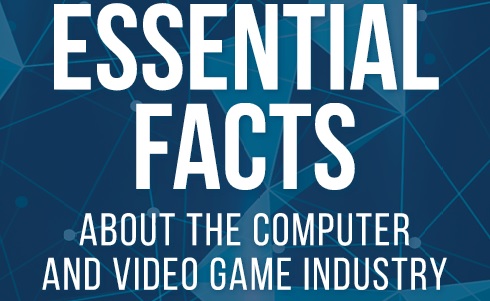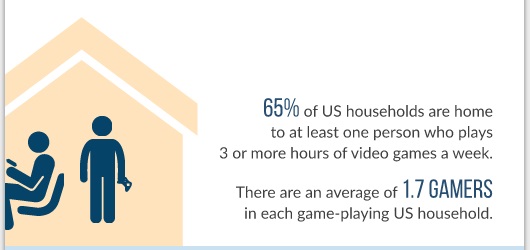
The Entertainment Software Association (ESA) has published their annual report about the computer and video game industry. This yearly report is an invaluable asset for researcher looking for statistics and figures concerning video game usage and consumption, as the ESA is the foremost collectors of this type of data. Each year they’re kind enough to report their findings, so let’s take a look at what this year’s report found.
Who is playing

More and more people are playing games, and the stereotype of video games being relegated to young boys is a thing of the past. The “average gamer” has seen an age decrease across both genders, with 2016’s report finding the average female was 44 and the average male gamer was 35. Nonetheless, the demographics of the gaming community is shifting towards being an activity participated across all ages. Female gamers above the age of 18 make up significantly larger population of the gaming community than men under the age of 18. That may sound unimportant, but consider it in relation to the general cultural perception of video gaming be a teenage boy activity.

Despite gains in the community, male gamers still make up the most frequent purchasers of video games. Considering that free-to-play titles are often a popular genre of games for females, this statistic may be slightly misleading as to who is actually playing games.

It is now more likely to have a gamer in your household than it is not to. The percentage of households that have at least one person who plays 3 or more hours a week has seen a slight increase from 2015 (63%). With this percentage growing each year, more and more we are moving towards a culture in which playing video games is the norm.
Who Are Gamers Playing With?
We’ve established that gamers are playing, but who are they playing with? With an increase in the number of online enabled games and access to online multiplayer platforms increasingly becoming easier each year, it’s not unreasonable to assume that more people are playing together.

The numbers suggest that people are connecting through games, with the majority of gamers believing gaming to be a way to connect with friends. This statistic falls in line with contemporary research on how gamers view multiplayer interaction within their lives. The amount of time spent online vs. playing in person has actually shrunk from 2015, with gamers playing half an hour more with individuals in person in 2016. With developers such as Nintendo investing considerable attention in local multiplayer, particularly with the newly released Switch, it will be interesting to see how this figure changes next year. All of this is to say that people are using gaming as a way to connect with those around them, including their family members and spouses.
 To go along with those findings, the amount of parental approval of video games has stayed steady with a very slight decrease from 2015 (68%). Despite this decrease, the majority of parents are found to believe video games are a positive influence on their kids’ lives and nearly all parents control the games their kids play in some way.
To go along with those findings, the amount of parental approval of video games has stayed steady with a very slight decrease from 2015 (68%). Despite this decrease, the majority of parents are found to believe video games are a positive influence on their kids’ lives and nearly all parents control the games their kids play in some way.
Other Findings:
- Games are big money: the video game industry is continuing to grow, with the industry growing to 30.4 Billion from 23.5 Billion in 2015.
- Bang for your buck: most gamers believe video games to be a better value for their money than music, movies, and dvds combined.
- Digital Games are on the rise: digital purchases now make up 74% of all sales, with an increase from 69% in 2015.
- Video Games are good for America: Video games added more than 11 billion to the GDP of the US in 2016.
Some great information for social science researcher to use to analyze video games and gamers. I left out a good deal of findings, so I definitely recommend checking out the actual report from the ESA. All graphics and pictures were pulled directly from the ESA’s report.
Follow me on twitter at @SocialVideoGame


















